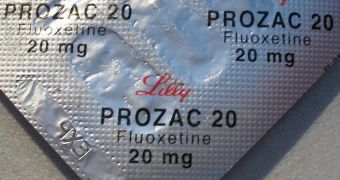In the United Kingdom, the condition known as early menopause is affecting 5 percent of all women, and researchers have been trying to find methods of detecting which females are at risk for many years.
Recently, a collaboration of scientists was able to identify a few genetic markers that appear to be linked with the onset of symptoms related to early menopause.
This line of research is very important because more and more women in today's society are delaying having children until they reach an older age. If early menopause sets in, they are no longer able to have kids.
In order to determine if and which genes were associated with the condition, experts at the University of Exeter Peninsula Medical School and The Institute of Cancer Research (ICR) looked at around 4,000 women.
Half of them had been diagnosed with early menopause, whereas none in the control group suffered from the condition. The science team compared the genes of women in the two groups.
They discovered that each of the four genes individually raised the risk of a woman reaching menopause ahead of time. However, when the four were combined, the risk was significantly larger.
These discoveries were made as a part of the UK Breakthrough Generations Study, which was conducted with funds from The Wellcome Trust.
Details of the study were published in the October 17 issue of the esteemed medical journal Human Molecular Genetics, Eurekalert reports.
Women who reach menopause earlier than normal were found in past studies to exhibit lower chances of developing breast cancer.
But this good news is counterbalanced by the fact that these females tend to develop other conditions, such as fertility reduction, cardiovascular problems, and osteoporosis.
“It is estimated that a woman's ability to conceive decreases on average ten years before she starts the menopause,” says University of Exeter Peninsula Medical School expert Dr Anna Murray.
“Therefore, those who are destined to have an early menopause and delay childbearing until their 30s are more likely to have problems conceiving,” adds Murray, who was also the lead scientists on the study.
“These findings are the first stage in developing an easy and relatively inexpensive genetic test which could help the one in 20 UK women who may be affected by early menopause,” she concludes.

 14 DAY TRIAL //
14 DAY TRIAL //